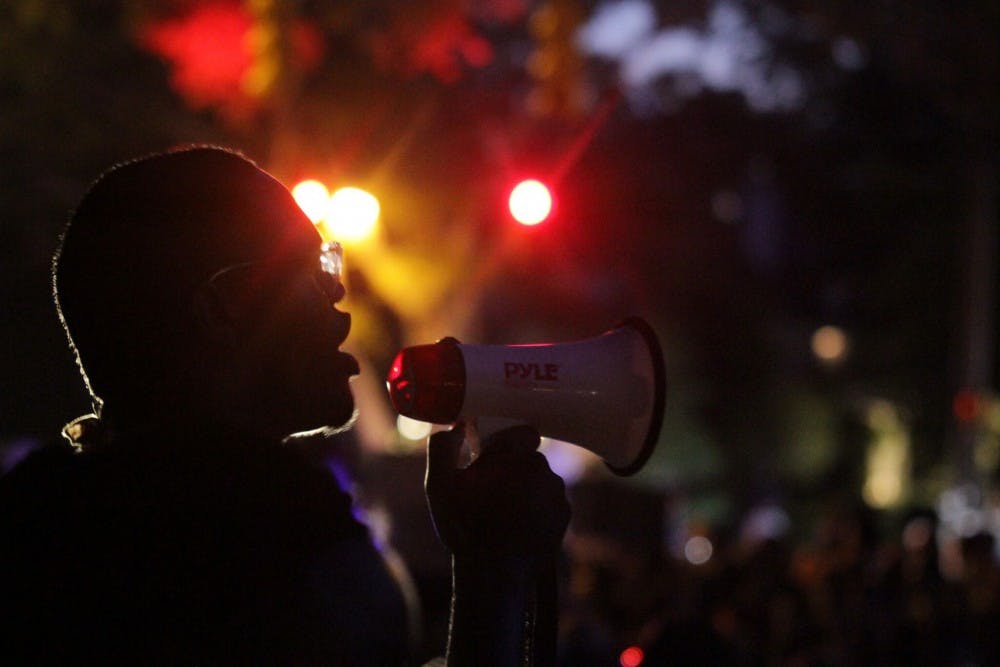Since it fell in August, Silent Sam has been in the minds of many people at UNC. But it has weighed most heavily on the minds of many students of color, and especially Black students, like UNC junior Sydney Adams.
Before the beginning of the past semester, Adams said she had never been to a protest.
“I won’t speak for everyone in the Black community, but I know for a lot of us, our family outside of UNC have encouraged us not to go to protests,” she said.
Shortly after Silent Sam fell, Adams ignored the warnings of danger and attended a protest to make her voice heard.
But she didn’t know she would end the night gasping for breath after police deployed pepper fogger to disperse protesters.
“My eyes were watering. I was coughing,” she said. “People were standing on Franklin Street with water bottles and handing water bottles out, and I had to get halfway down Franklin Street before I could breathe again.”
Adams said this event weighed on her mentally, leading her to avoid protests for the rest of the fall semester. But as Silent Sam was in the news more and more, she found it was always there in the back of her mind.
It moved to the forefront for Adams when former UNC Chancellor Carol Folt proposed the University build a $5.3 million building dedicated to the statue, especially because it would have been located in Odum Village, which the UNC Black Student Movement describes as a historic "significant location for Black students to live and congregate."
For other Black students, such as junior Xzavian Carter, the museum proposal felt like "a slap in the face."



